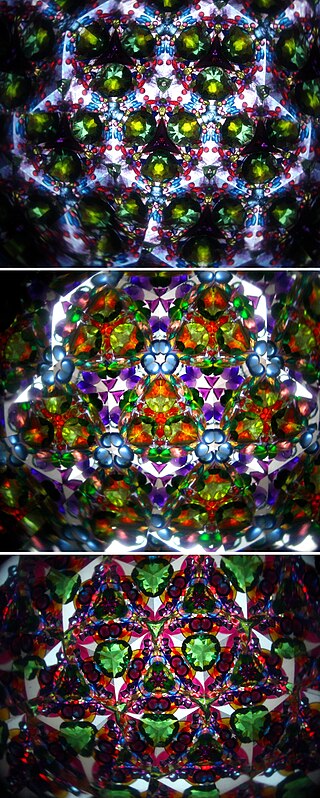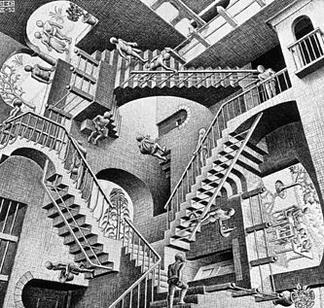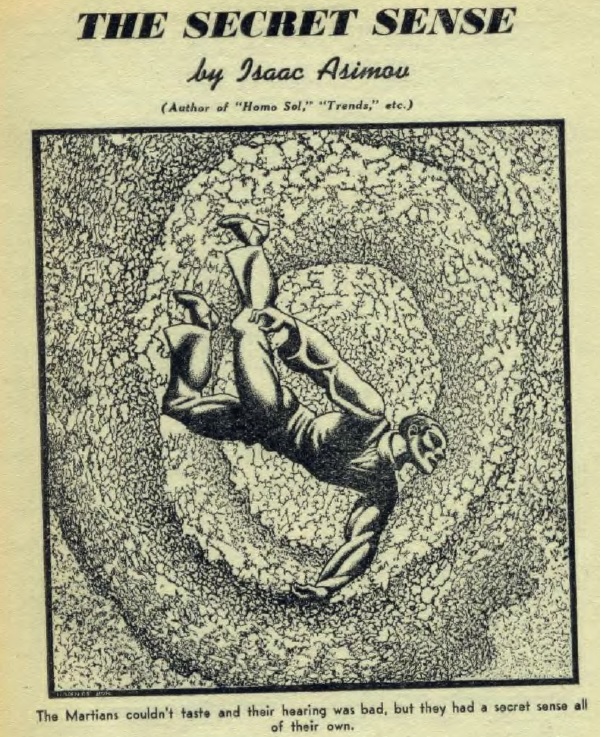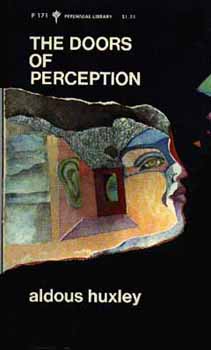“Intricate patterns of brilliant tints formed and faded, beating in silent bursts of color upon the young man’s eyeballs… Somehow, he knew that what he saw, heard, and smelt were mere delusions— mirages of a brain that frantically attempted to interpret an entirely new conception in it… The effect of the hormone became stronger, and suddenly — in one burst — Fields realized what it was he sensed. He didn’t see it — nor hear it — nor smell it — nor taste it — nor feel it. He knew what it was but he couldn’t think of the word for it. Slowly, he realized that there wasn’t any word for it. Even more slowly, he realized that there wasn’t even any concept for it. Yet he knew what it was. There beat upon his brain something that consisted of pure waves of enjoyment — something that lifted him out of himself and pitched him headlong into a universe unknown to him earlier. He was falling through an endless eternity of — something.” Asimov, ‘The Secret Sense’.
These words were my words, these sensations were my experiences as a miniscule amount of a miraculous chemical bubbled threw my veins passing the blood brain barrier. Read on…

Inside

outside
I was in a safe space prepared by friends. I was opening and closing my eyes, alternating between my inner visions and viewing the outer world. Closing my eyes, I saw cheap ‘Las Vegas’ light displays, complicated kaleidoscopic images, people dancing, a black and white image of a woman, animated lizards, huge white ping pong balls bouncing, old colourful pixelated computer game. The images came and went like the wind faster than I could ever describe. The outer world mostly looked normal except for when geometry went all crazy and the room turned into an Escher painting or for the green glow that surrounded my fingers and shone around the words I wrote.
I realised that these visions were just a side effect of my brain adapting to something new. But what was it?
Words were hard to come by especially while writing. It was easier to speak than write. I could speak about anything except what the hell I was sensing. A theory in neuroscience equates consciousness with the ability to report. For me, this experience threw that theory out of the window. I was so completely conscious, perhaps more than I have ever been, yet it was so obvious to me that words were too small, too limited to describe what I was going through.
Normal?
During this ‘acclimation’ period it all felt normal. Even though I knew I was not ‘normal’. Besides the visions, my nervous system was sending mixed signals, I was hot and cold at the same time and my heart rate was elevated. Yet despite this the ‘normal circuit’ in my brain was turned on. Time still felt ‘normal’, the speed of my thoughts still felt ‘normal (unlike weed, which plays with these perceptions by affecting receptors in the short term memory part of the brain). “Your hands are shaking,” my friend said. “No they aren’t,” I argued looking at my hands. I held a glass of water, putting it on the floor for support and sure enough ripples and waves began flowing through the water. How could my brain trick me thus? Was there any sensation I could trust? Perhaps this was what schizophrenic people felt? Normal, absolutely normal.
Lose yourself
“You are looking for a model that will never be complete. The world is just too worldy. The subject is so biased and small,” I wrote as the distance between the outside world and the inner perceptions of that world began growing. I felt the distance between Sense – Perception – Action. One was so limited by the specific senses through which one came in touch with the world. There was so much out there that we would never know or feel or experience, and what did come through and was recognised as our ‘perception’, was so warped by our survival instincts, by our past experiences, by our emotions. “To make biological survival possible, Mind at Large has to be funneled through the reducing valve of the brain and nervous system.” As Huxely put it in The Doors of perception, where he described his experience with the Mescalin drug.
Slowly but surely these warps in perception began clearing up. We listened to music and watched Samsara, the images and sounds were extremely clear but the judgement connected to them was gone. Whether something was beautiful or scary it was just an image, just pixels, just photons transferring their energy to my retina. Beauty, pleasure, fears they were all interpretations; they were not the sensation itself.
This was the complete opposite of any other drug I have tried. This was the Buddhists Nirvana. Everything existed as it was without the ‘I’. Words were so weak because they were part of the subject, and the subject was so unimportant. Tears were flowing from my eyes but they weren’t my tears. I’ve always considered my tears a truth indicator and here was a truth I could not deny. “To actually feel that I don’t exist!” I wrote. The ‘professional’ term for this phenomenon is “death of the ego”, yet in this death I felt more alive than ever before.
Please shoot me if I become a hippie!
We watched videos of LSD experiments from the 50 and I knew these people were sensing the same thing that I was and they were just as incapable in describing it.
What would I call this extra sense If I had to limit it to a word? The Paradox sense! I knew it at once, I was sensing the uncertainty principle, I was sensing Gödel’s paradoxes, I was sensing the very limitations of an organism looking on itself. And it didn’t feel bad.
“If I write this I just might puke,” I wrote, “But love, is not an emotion it is the I. it is the only thing that can converge me. The only thing I can still identify with.” I seriously contemplated how one could research the connection between consciousness and love. And I laughed. Oh, how much I laughed.
Most my life I’ve been obsessed with paradoxes, I wrote a whole sci-fi book about them. The philosopher Ken Wilber explains the world in terms he calls Holon, things that are simultaneously a whole and a part. Usually the sensation of these different aspects of the Holon I call ‘me’ or the Holons of the ‘universe’ evoke the sensation of pain, of contradiction. In this state I was fully aware of these contradictions and of the limits of my own being, but there was no pain. Things were as they were and that was a huge relief, a type of bliss. There was no pain and no fear, not even of death. And if pain or fear existed they were not mine!

Masaccio
Paradise Lost
As the perceiving “I” was taken out of the picture I realised there was no telling what actions this organism might decide to do. “Would this organism take care of itself?” I asked myself. “I’m not sure. Maybe,” was the answer?
It was extremely hard to care about this ‘body’ to feed it, to get it to drink. Yet when a pain was too strong I stopped it, when I walked down a dark stair case I held on to the rail and walked slowly as not to fall and I still wouldn’t agree to eat oranges even if I didn’t feel I hated them.
“You would never survive out there like this,” my friend insisted. “Out there I wouldn’t’ but in a safe environment I think I could. I would be functioning at around 60%. But why not live like this with truth before emotions?”
“Where could you find this type of environment?”
“The Garden of Eden,” I blurted. I could go around picking fruit and staring into the air. I could do this. I would never be bored. Was eating from the forbidden tree of knowledge an ingenious metaphor of humanity developing an ego? And if so why couldn’t we go back there?
After some experimenting I came to believe humans could not only live like this, they could procreate too. It was a pleasant surprise to discover that ‘my’ organism could feel horny. Sex itself was utterly clear without any annoying voices in my head, without ‘trying’ to achieve an orgasm. And when the orgasm did come it cut sharply through all my senses verging on pain.
Final words
“This is when you realise so many of the artists you love were trying to express this feeling,” my friend said at some point. “Yes, Art tries, music tries, love tries, nothing can,” I agreed.
My friend, an advocate of Wittgenstein, claimed that this was proof of Wittgenstein’s ideas, that language puts a limit on the expression of thoughts. For me this was proof of the exact opposite, thoughts, sensations, consciousness are so much beyond language. “But how will you express these thoughts and pass on this knowledge to other people if it’s beyond language?” My friend insisted. “Easy, I’ll just give them some of these magic molecules and let them experience it first-hand.”


